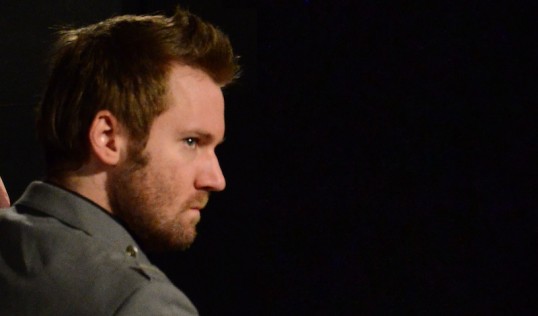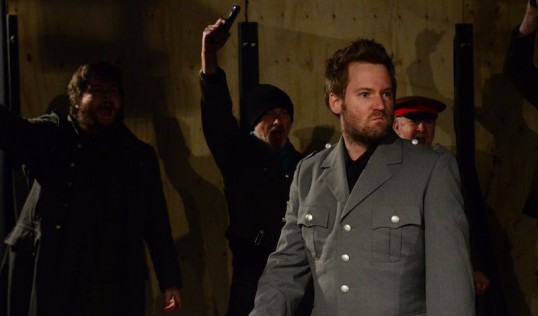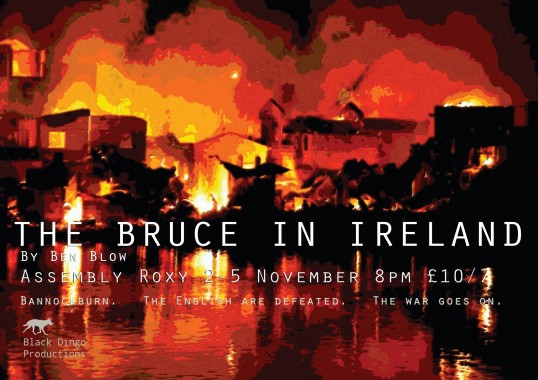After Bannockburn
New play follows the Bruces to Ireland
Thanks to Mel Gibson’s Braveheart, the world knows of Robert the Bruce’s triumph at Bannockburn – which earned Scotland her freedom. At least according to his film.
Of course the story of the wars of Scottish Independence are not quite as Gibson depicted – and certainly didn’t stop there. It’s this tendency for the story to pitch up at Bannockburn and end which has inspired the latest work from Edinburgh-based playwright Ben Blow.
Specifically, Blow is interested in the three-year military campaign in Ireland by Edward Bruce, Robert Bruce’s brother. After the victory at Bannockburn, Robert decided to expand his war against the English by sending an army under his younger brother Edward to invade Ireland.
The Bruce’s intervention in Ireland was, as Blow explains: “a tragic tale with much effusion of blood, shifting alliances and no clear objective other than the continuation of conflict.”
He adds: “It seemed to me the perfect setting for not only an exploration of the aftermath of Bannockburn but war in general and specifically the alien psychology war breeds.”
The resulting play, The Bruce in Ireland, will be staged at the Assembly Roxy this week, Monday 2 – Thursday 5 November. The production, from Black Dingo, will be directed by Kolbrun Bjort Sigfusdottir, who had something of a minor hit at this year’s fringe with Richard III (a one woman show).
Although his play is based on historical events between 1315 and 1318, Blow has chosen to set it out of period. The reason is, he says, in order to make the action “both familiar and strange”.
the doom of thousands
“War has always been war and the motivations and habits of armies do not tend to differ greatly,” he says. “It is not a specific modernisation but has a general mid-twentieth century feel. It is hoped that this will assist in seeing the actions of the Bruces in the context of any war.
“The motivations are political, the results catastrophic, atrocity abounds and the ambition of one man can spell the doom of thousands.”
If Blow has side-stepped the sort of faux pas that was visited on historical accuracy by Mel Gibson by moving the time frame, he is still dealing with a fictionalised account of history, as he is happy to point out.
“Edward and Robert Bruce are real historic figures but most of the characters are invented or composites of historical personages.
“A certain amount of iconoclasm is intended but I am not intending to shame the Bruce any more than any other medieval warlord. I expect it may be jarring to have the flip-side of the romantic, sanitised idea of the wars of Independence so brutally examined but that is the point: war is war; an atrocity in itself.”
Blow adds that he wanted to create “something akin to a Scottish Richard III“. He has used the fact that history reveals little of the specific about Edward Bruce as licence and run with it.
The result is, he says: “a somewhat likeable anti-hero conflicted between his own ambition and military necessity but entirely focussed on achieving his aim. Everything else is an obstacle to be overcome and even friends and allies are a burden to him.
“To me this seems an apt cipher for the realities of this conflict. Edward Bruce came closer than any other to demolishing the Norman English establishment in Ireland but the price was terrible for friend and foe alike.”
Listing
The Bruce in Ireland by Ben Blow
Assembly Roxy Upstairs, 2 Roxburgh Place, EH8 9SU
Monday 2 – Thursday 5 November 2015
Daily: 8pm.
Running time approximately 80 min.
Age recommendation: 14+ (contains strong language and violence throughout)
Tickets available on the door or bookable at: http://www.brownpapertickets.com/event/2402633
ENDS





















